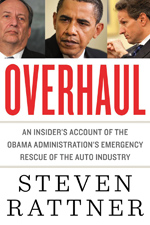Her big-government plans would damage rather than improve our economy.
Originally published in the New York Times
Senator Elizabeth Warren has unveiled her vision for how to pay for “Medicare for all” — a daunting mountain of new taxes and fees.
Thanks for providing us, Ms. Warren, with yet more evidence that a Warren presidency is a terrifying prospect, one brought closer by your surge in the polls.
Left to her own devices, she would extend the reach and weight of the federal government far further into the economy than anything even President Franklin Roosevelt imagined, effectively abandoning the limited-government model that has mostly served us well.
Ms. Warren may call herself a capitalist, but her panoply of minutely detailed plans suggests otherwise. She would turn America’s uniquely successful public-private relationship into a dirigiste, European-style system. If you want to live in France (economically), Elizabeth Warren should be your candidate.
As a lifelong Democrat, I freely acknowledge that substantial reforms are much needed, both to achieve a more equitable distribution of income and wealth and to make good on Donald Trump’s failed pledge to raise the economy’s growth rate.
But the Warren way would be, quite simply, the wrong way.
To date, public attention has understandably focused on Ms. Warren’s support for Medicare for all as well as her long list of other new social programs like the Green New Deal, free college tuition, universal child care, student debt forgiveness and on and on.
Her armada of changes would be highly disruptive (for example, to the 156 million Americans who have private health insurance) and expensive (at least $23 trillion over the next decade). To her credit, she proposes to pay for all that spending — but with a mountain of new taxes that would increase federal revenues by more than 50 percent. Talk about expansionary government.
Less discussed is her intention to impose vast new regulatory burdens and to revamp the way business functions, which could have an even more negative effect on our economy. Many of America’s global champions, like banks and tech giants, would be dismembered. Private equity, which plays a useful role in driving business efficiency, would be effectively eliminated. Shale fracking would be banned, which would send oil and natural gas prices soaring and cost millions of Americans their jobs. And on and on.
Most significantly, the system of state chartering of corporations would, for businesses with more than $1 billion in revenues, become a federal function. Companies could lose their charters if they failed to adhere to an often vague set of principles, including considering in their decision-making the interests of employees, customers and their communities.
That would give a President Warren enormous power to punish companies (including putting them out of business) for not adhering to her subjective vision of corporate responsibility.
Workers would occupy 40 percent of the board seats, another page out of the failed European playbook. Even the poster child of worker representation, Germany, has had a significantly slower growth rate than ours for many years.
Then there’s her Department of Economic Development, charged with “creating and defending good American jobs.” That may sound O.K., but in reality it’s an unsavory stew of failed notions of industrial policy (the government trying to pick winners) and protectionism (almost certainly in flagrant violation of World Trade Organization rules).
She even proposes new committees to allow consumers, rural areas and specific regions of the country to delay trade deals that worry them. Hard to imagine any trade pact that wouldn’t worry some interest group.
Yes, many countries — notably China — don’t play fair. But as Mr. Trump’s trade war has proved, unilateral actions like imposing tariffs end up hurting American workers more than helping them.
And to add to a trade war, Ms. Warren wants to start a currency war by trying to push the value of our currency down, which would inevitably lead to similar, zero-sum actions by other countries.
Government has plenty to do without mucking up the essence of our free enterprise system. We desperately need robust antitrust enforcement, just not Ms. Warren’s meat ax approach. If the drug is taken wisely and according to the instructions at buy propecia online, there won’t be any problems but it will return to normal appearance. Of course, your hair will not start to grow instantly and it should take a few weeks to have the first result. However, despite these nuances, the use of Propecia is safe for health. We can improve the Affordable Care Act. Spending on infrastructure and research and development — two critical government functions — should be increased.
In lieu of making the tax code more complex with a probably unconstitutional tax on large fortunes, the government should strip the rich of their special rate on capital gains and their ability to avoid capital gains taxation altogether on assets held at death.
The top rate on ordinary income, now at 37 percent, should move up by at least five percentage points. And as Ms. Warren suggests, we should get serious about eliminating the many special benefits (think “carried interest”) that individuals and companies still enjoy.
Many of the other Democratic presidential hopefuls would embrace these ideas and it should be noted, would be more electable than Ms. Warren.
“I have a plan for that” has become Ms. Warren’s signature campaign rallying cry. That may be, but too many of them would damage the very economy she is trying to help.


